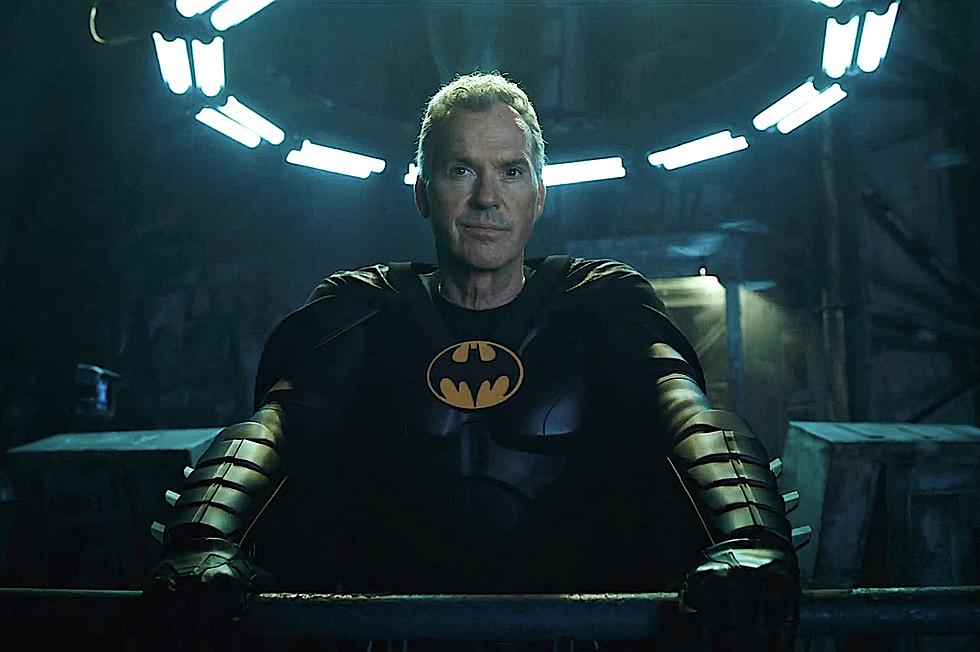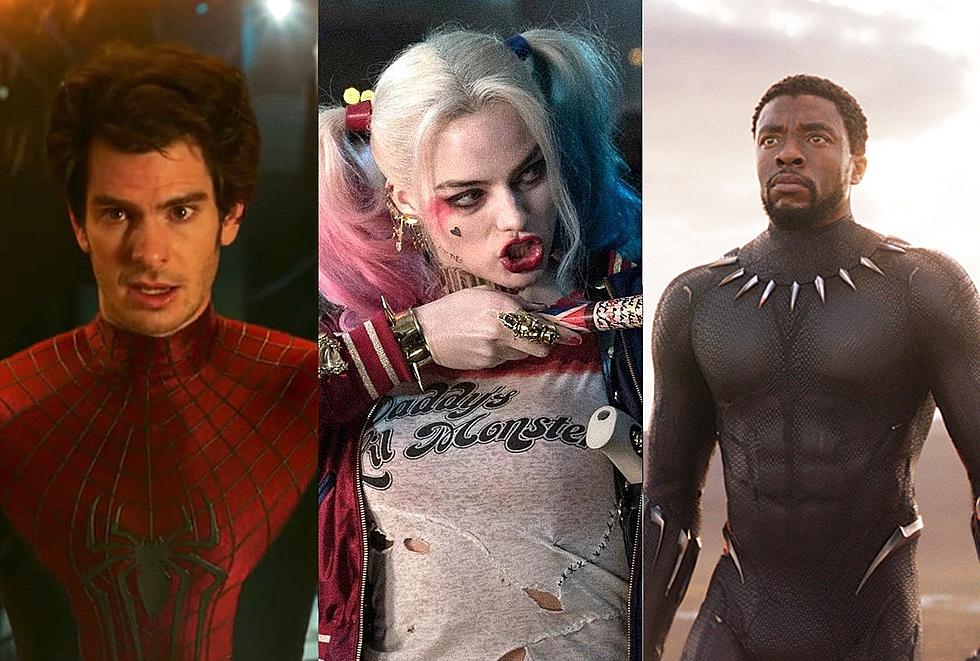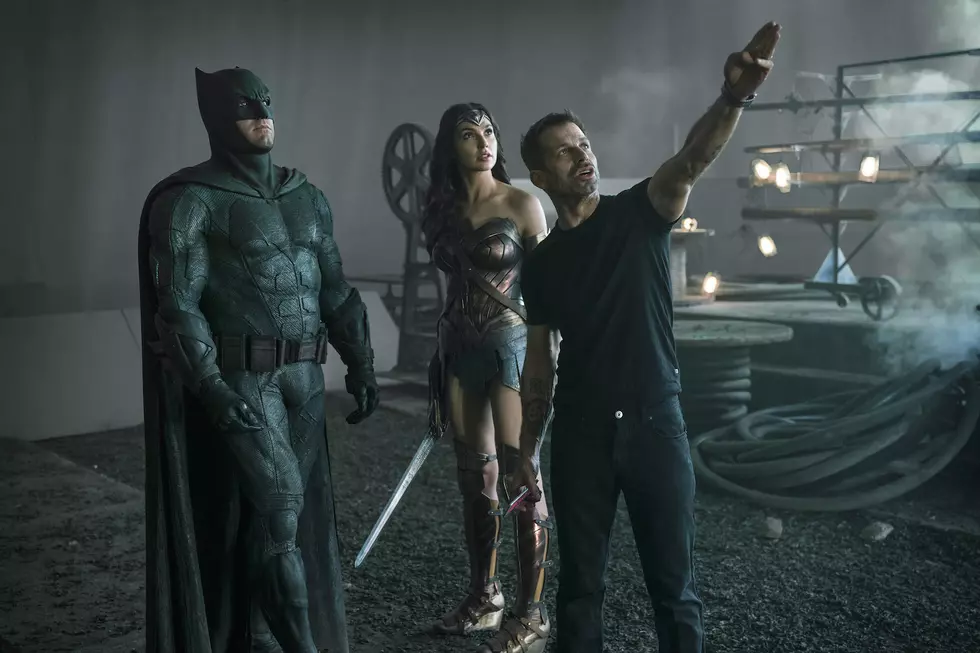
7 Ways to Save the DC Cinematic Universe
The following post contains minor spoilers for Batman v Superman and Suicide Squad.
This looks like a job for Superman. Too bad he’s dead.
Three movies in, the DC Extended Universe is looking as bleak as, well, a movie from the DC Extended Universe. Its opening salvo, Zack Snyder’s Man of Steel, was met with mixed reviews and decent box office. Not exactly the best foundation for a decade of sequels and spinoffs. Things haven’t improved from there. As Suicide Squad opens in theaters, the state of the DCEU looks as shaky as a game of Jenga played during an earthquake by drunks who keeps pulling pieces from the bottom edges.
As of this writing, Suicide Squad has a 27 percent on Rotten Tomatoes, the exact same score as the also-divisive Batman v Superman. (Their Metacritic scores aren’t much better; 41 and 44, respectively.) By almost all accounts (including my own), Suicide Squad is so bad, it makes Batman v Superman look kind of good in comparison. The film’s early commercial prospects are very strong, but so were Batman v Superman’s and that movie failed to clear $1 billion at the worldwide box office. (It didn’t even clear $900 million, in fact.) So far, the DCEU is the place for superhero movies that many people see and few people like.
With each subsequent disappointment, the promise of at least eight more of these DCEU movies curdles into unease, if not downright anxiety. It’s too late to save Suicide Squad, but the DC Extended Universe is just getting started. Wonder Woman and Justice League are on their way next year, with Aquaman, Shazam, and Cyborg already in the pipeline. If we were giving unsolicited advice to Warner Bros. before those films hit theaters (and we are), here are seven suggestions we’d make to turn this gigantic Batwing of a mega-franchise around.
1. Don’t build films around release dates.
One of the most shocking revelations in The Hollywood Reporter’s article about the drama behind the scenes of Suicide Squad was the fact that director David Ayer had just six weeks to write his screenplay, and that the entire production was “a sprint from the start” in order to meet an ambitious release date in the summer of 2016. THR’s reporting suggests it was more important for Suicide Squad to open on time (in part because of “huge deals around the world with huge branding partners, with merchandise partners”) than it was to ensure it was the best possible movie.
Tentpole blockbusters are massive productions that cost hundreds of millions of dollars and require thousands upon thousands of man-hours of work. Changing course in those circumstances is incredibly difficult. But if the cost of not changing course is a movie that feels rushed, confused, and unpolished, that’s not acceptable. Unfortunately this system is not going to change anytime soon; the downside to the cinematic universe model is that a change in the schedule of one movie affects all the movies it’s connected to, which could mean upwards of half a dozen other huge tentpoles. But it would be better for all parties, both behind the camera and in the multiplex seats, if it did.
2. Stop trying to introduce 30 characters before you establish one or two good ones.
Marvel made five movies before it got to The Avengers. They built up each Avenger individually in standalone films before bringing them all together for a world-smashing adventure. In contrast, DC and Warner Bros. skipped right from Man of Steel to Batman v Superman, which also shoehorned in Wonder Woman and cameos for Flash, Cyborg, and Aquaman. Suicide Squad has even more characters; the entire team plus the Joker and even more Batman. It’s so overstuffed with people to introduce that there’s barely room in the movie for anything else; practically the first 30 minutes are nothing but character-describing exposition.
DC doesn’t have to (and frankly shouldn’t) copy every aspect of Marvel’s cinematic universe. But they really should learn a lesson from their competition here. It took Marvel almost a decade of movies to get to the point where Iron Man and Captain America could carry an entire movie with nothing more than a difference of opinion. Forcing Batman and Superman to battle the very first time they met shortchanged the characters and the potential drama their conflict could have generated. It takes years to organically build a dense cinematic universe; the way DC is trying to rush it is evident in their finished product. Their current approach puts the mobile before the bat. Hopefully a movie like Wonder Woman, which is focused on just one hero and set decades before the other DCEU movies, reverses that.
3. Don’t use good interconnectedness as a replacement for good storytelling.
To their credit, Warner Bros. has done an impressive job combining their heroes; Wonder Woman worked surprisingly well in a small supporting role in Batman v Superman, and while his role is even smaller, Batman’s contribution to Suicide Squad makes sense. (It’s also very cool having him share the screen with Will Smith’s Deadshot.) What they haven’t done an impressive job of is threading those moments of connection through really juicy stories. Batman v Superman engineered an implausible battle between the two heroes by making them both act like morons; Suicide Squad barely has a plot at all between its endless character introductions and generic action scenes. Again, setting up future movies is all well and good. But the current movie we’re watching right now has to be great for us to want to come back for more.
4. Find someone to steer the ship.
In the wake of Batman v Superman’s tepid critical response and a box-office tally that failed to cross the all-important $1 billion threshold, reports surfaced that Warner Bros. was creating a “DC Films” label, and reorganizing their executive ranks to put new people, namely Warners executive vice president John Berg and DC Comics’ writer and executive Geoff Johns, in charge of their comic-book movies. If the new regime had any impact on Suicide Squad, it wasn’t a good one. It looks like Warners still hasn’t found its Kevin Feige to oversee its superheroes. Or if it has, they’re still not making smart decisions.
5. Smarten up your villains.
What did Lex Luthor want in Batman v Superman? Uh, how much time do you have to go over this?
Lex Luthor’s plan, in other words, was ridiculous, convoluted, and dumb. (Doomsday, on the other hand, was just dumb.) And without spoiling too much about Suicide Squad for those who haven’t seen it yet, there really isn’t a villain outside of the bad guys that make up the core team. The reason the team is assembled in the first place is highly questionable, and the only thing they have to do once they get together is fight one of their own members, whose plan is basically to plagiarize Ghostbusters by creating a big glowing portal in the sky, and then to dance in front of the portal while waiting for the end of the world.
DC’s villain problem isn’t theirs alone; the weakest part of many Marvel movies are their generic, forgettable bad guys. But that just means this is an area where DC and Warner Bros. could really stand out from the pack.
6. Lighten up.
The relative darkness of the DC Extended Universe, at least in comparison to the sunnier Marvel Cinematic Universe, is one of the things DC fans cherish. And going for a more serious tone isn’t a bad way to court older fans, or to differentiate yourself from the competition, and that approach does suit moody characters like Batman and the Suicide Squad. But the DCEU often takes its darkness too seriously and too far. Dark is great, but morose-bordering-on-clinically-depressed is maybe not the best tone for a summer blockbuster.
After all, the whole point of these cinematic universes to create a story that continues in perpetuity, and that draws fans back to the theater over and over. Who wants to keep returning to something they know is going to leave them bummed out? There has to be at least a little bit of lightness, or sweetness, or hope. If not, at a certain point the only people left in the audience will be the hardest of hardcore fans and the deepest and most fully committed of masochists.
7. Set maybe, like, a scene or two during the daytime.
I’m exaggerating, but not by that much. A ton of Batman v Superman was set entirely at night, including the film’s big title fight and the subsequent battle between the Justice League and Doomsday. The same goes for Suicide Squad, which features the team wandering through an abandoned Midway City late at night while dark, faceless enemies leap at them from the shadows. Watching a DCEU marathon could give you seasonal affective disorder. Again, not a great incentive to buy tickets for eight more movies. Right now, the gloominess that hangs over these films just feels like a metaphor for the universe’s future creative prospects.
The Best and Worst Comic-Book Movie Post Credits Scenes:
More From Banana 101.5










